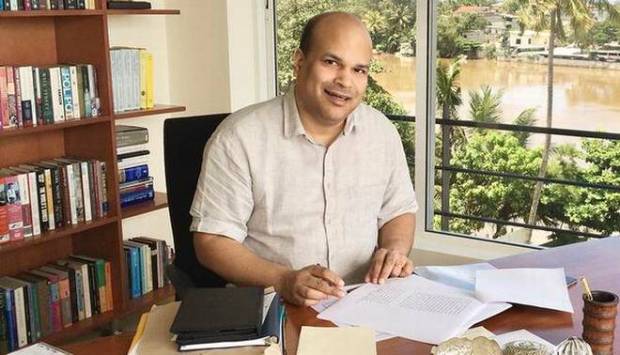Indo-Lanka ties should evolve into a special relationship says new envoy
By Meera Srinivasan
COLOMBO – India and Sri Lanka should maintain open and regular communication across multiple channels and ensure there are “no surprises” to either side, according to Milinda Moragoda, shortly to assume duties as Sri Lanka’s High Commissioner in New Delhi.
Speaking to The Hindu in Colombo, Moragoda, who recently submitted a ‘road map’ to President Gotabaya Rajapaksa, outlining proposals for strengthening Indo-Lanka ties, said that while the relationship is evidently “asymmetric”, the focus must be on elevating bilateral ties from the current “transactional” phase to one that is more “strategic”. “It has to evolve into a special relationship, that should be our aim,” said the High Commissioner-designate, who has been awarded a ‘Cabinet rank’ by the Sri Lankan government, effectively enabling him to report directly to President Rajapaksa.
The road map itself came amid considerable strain in relations. In a surprise move earlier this year, Sri Lanka unilaterally dropped a 2019 plan to jointly develop the East Container Terminal at the Colombo Port with India and Japan. Citing domestic opposition to foreign investment in a strategic national asset, the Rajapaksa administration reneged on the trilateral agreement signed by the predecessor government, instead offering the West Container Terminal to the Adani Group in India.
Further, Moragoda’s strategy paper lays out plans to enhance investment prospects, religious and cultural ties, but makes no mention of expediting a political solution to Sri Lanka’s national question that has remained a cornerstone of India’s engagement.
Observing that President Rajapaksa is leading a “diverse coalition”, Moragoda said a political solution or post-war reconciliation must be “home-grown”. “A political solution is not all about laws and the Constitution,” he said.
Moragoda, 57, is a businessman and a former politician who has held key ministries in past governments. He was earlier aligned to former PM Ranil Wickremesinghe and was a prominent arbiter in the government’s peace talks with the Liberation Tigers of Tamil Eelam (LTTE), brokered by Norway in the early 2000s. He is also the founder of the Colombo-based think tank, Pathfinder Foundation.
Moragoda has advocated the abolition of provincial councils, arguing that the structure has proved “superfluous, expensive, divisive, and is fraught with inefficiency.” “That is my personal view,” Moragoda said, of the provincial structure envisioned in Indo-Lanka Accord of 1987.
“I believe we should look at a model where we devolve more power to the local governments instead, while keeping a Senate at the Centre, where all ethnic groups are fairly represented,” he said.
Sri Lanka’s nine provincial councils have remained defunct for at least two years, pending elections.
Asked about frequent calls to repeal the provincial council system, from Sinhala nationalists including those in government, Moragoda said: “As of now, the provincial council system is very much part of our Constitution, and there is no threat. However, elections to the councils will have to wait until we have a consensus on a new electoral system in Parliament.”
-The Hindu


